Pieces of a developer’s personality come through in every website they design, program they build, and code they write, but it’s also important to have a space where they can show the whole picture of who they are and the work they do. This is where Polywork comes in. And while spending hours on end in front of a computer screen comes with a developer’s job description, that time and energy should be focused on the projects at hand, rather than crafting the perfect profile.
Here are three quick and easy ways that developers utilize their Polywork profiles to efficiently share more about themselves and their creations.
1. Keep track of your growth
No matter their skill-level or experience, software developers always have more to learn and practice. Think of it like exercise or art: no matter how much you do it or how good you get, you can never be finished. It’s a good thing, then, that the practice can be fun, and one’s Polywork profile is the perfect place to track that progress.

Simone Margio, a freelance software engineer, for instance, uses their Polywork page to share project highlights such as their restyled personal website they’d been tinkering with and the iOS apps they’ve worked on. They also started a “100 Days of Swift” challenge, in which they practice a new skill each day, posting their progress along the way and inviting others to join along.
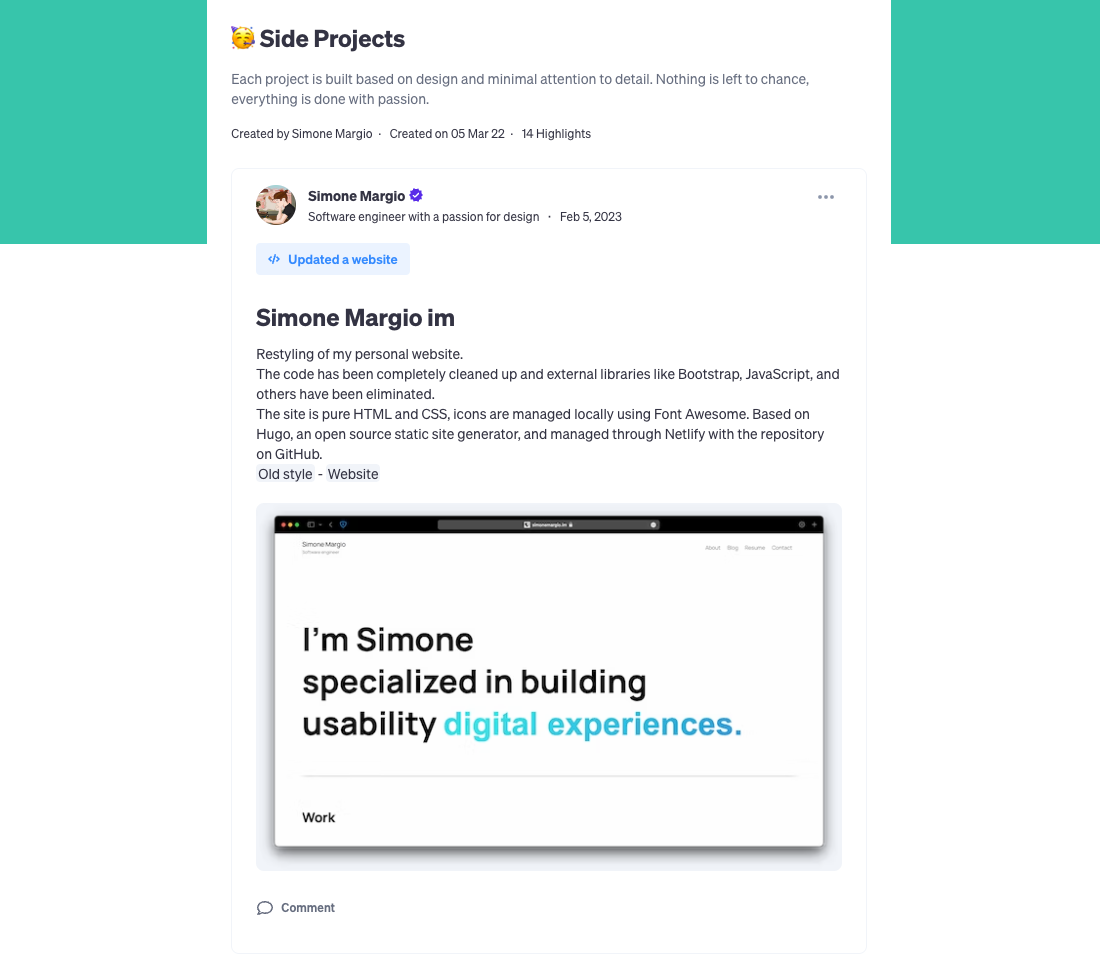
2. Amplify—and organize—your voice
As the world of web and software development constantly evolves and grows, developers often find themselves being asked to share their insights. Polywork is a great place to compile all of your appearances into one well-organized highlight reel for future and past collaborators to see.
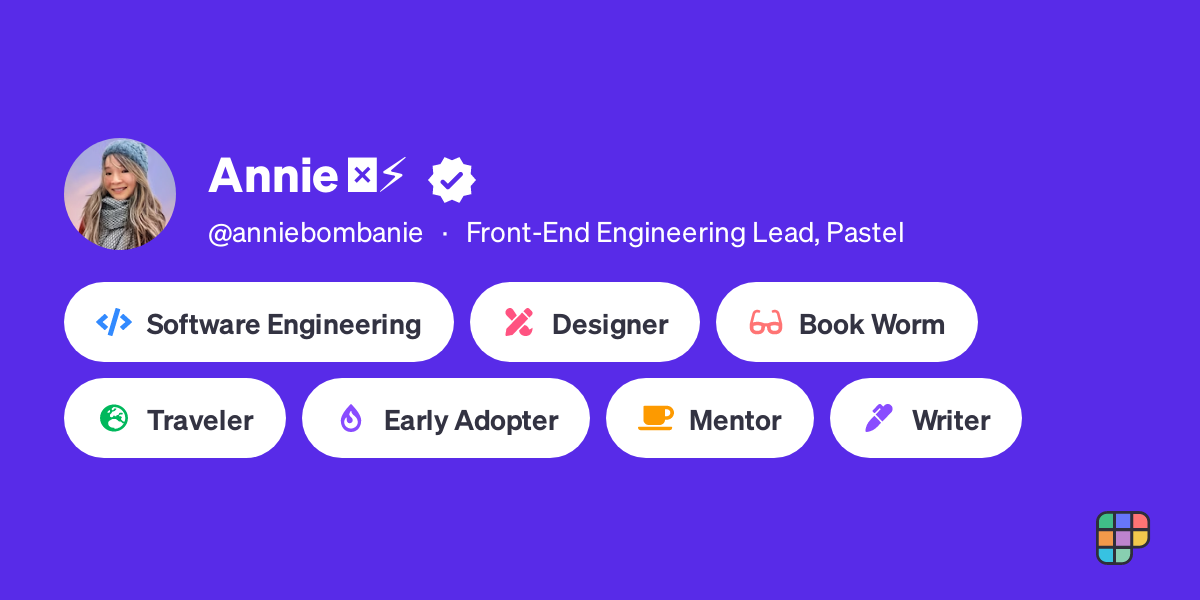
That’s how Annie Liew, a Toronto-based front end engineering lead at Pastel, uses her Polywork profile. In her Collections, Annie has dropped links to the blog posts she’s written, the interviews she’s done, the panels on which she’s spoken, and the podcasts in which she’s appeared, centralizing all of her wisdom in one place.
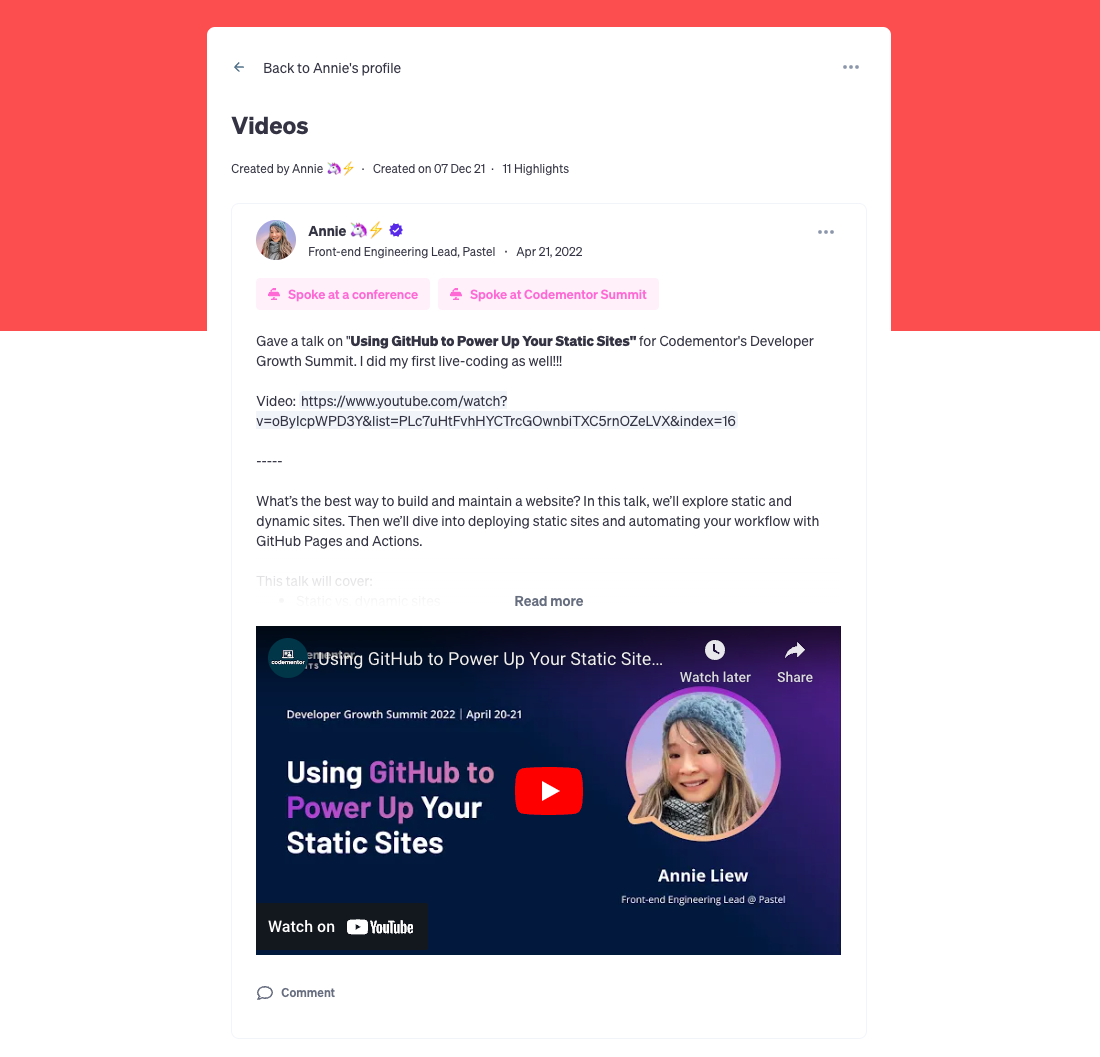
3. Build a digital scrapbook
A year in the life of a developer can be a whirlwind, full of various projects, engagements, and collaborations with new people. To keep it all straight, Michael Friedrich, a developer at GitLab, documented the full year of 2021 on his Polywork page, pasting career highlights like photographs and ticket stubs in a scrapbook.
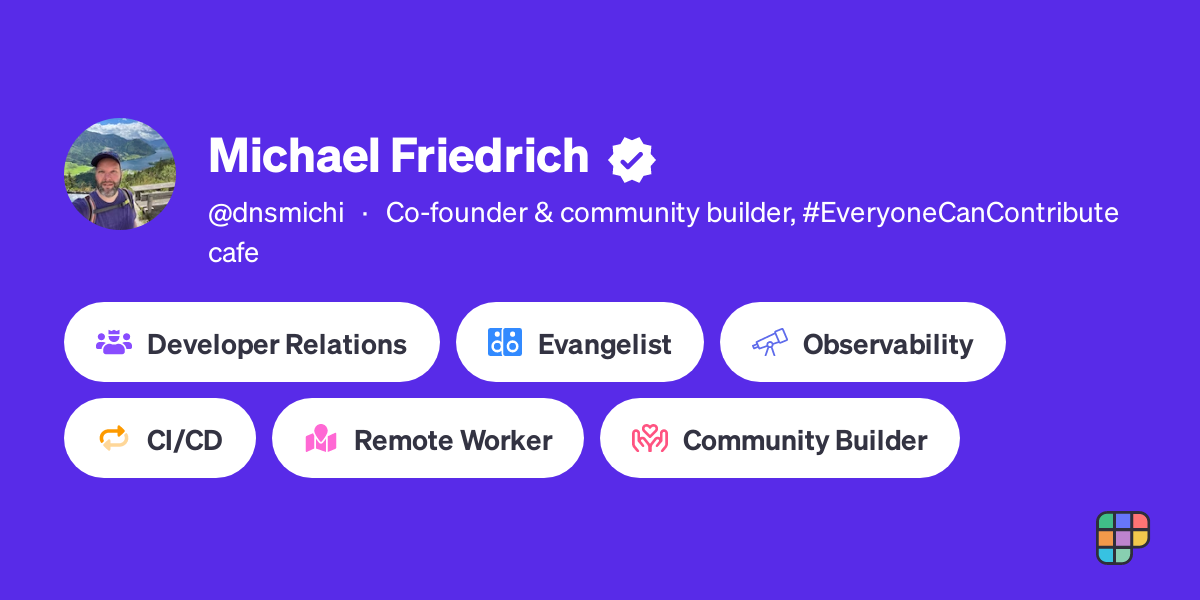
Michael organized his accomplishments chronologically, detailing “a year moving fast in uncertain times,” he writes, with meetups he hosted for colleagues, conferences he attended, live streams he watched, and awards he received. Reading it back feels not only like a record of opportunities and knowledge gained, but also a walk down memory lane.
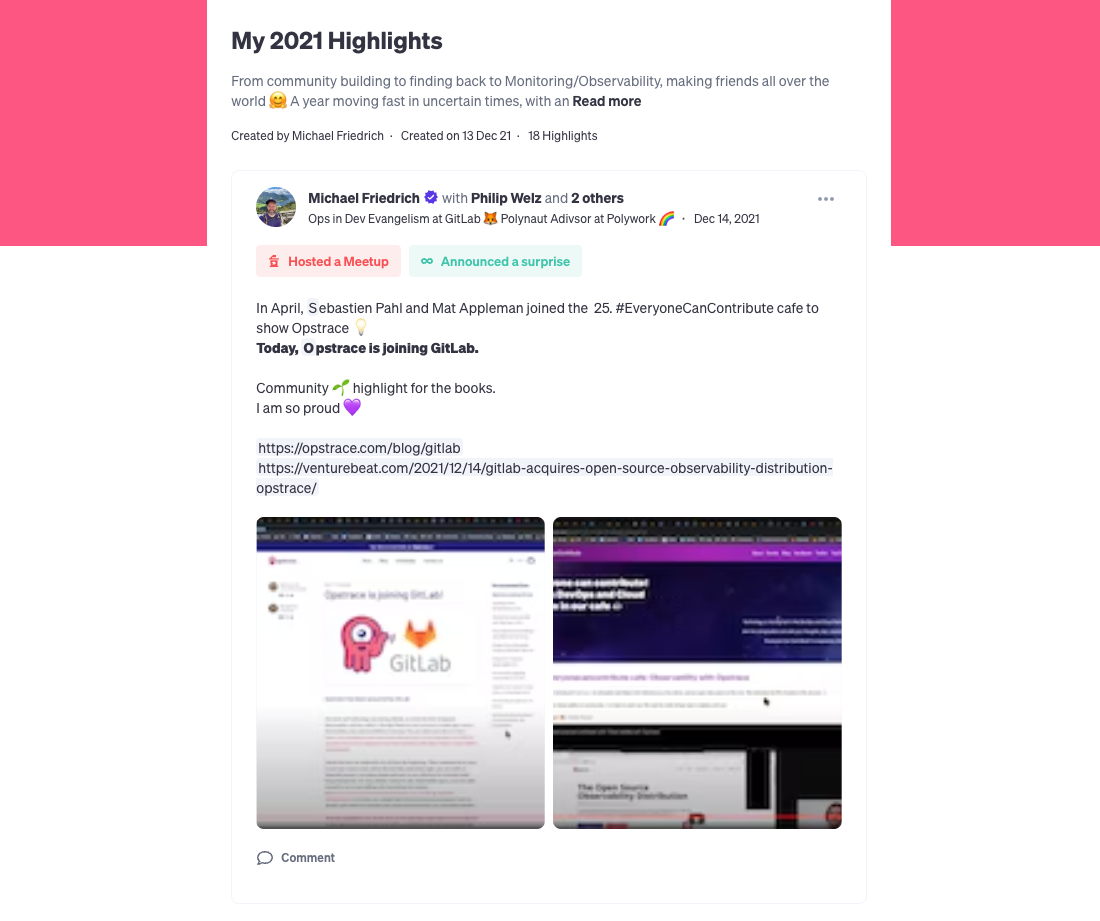
Make it your own
When it comes down to it, every Polywork profile tells a different story. Whether you’re sharing tutorials, testimonies, finished products, or links to open-source code, use your Polywork page to share the aspects of your work that differentiate you from everyone else.



